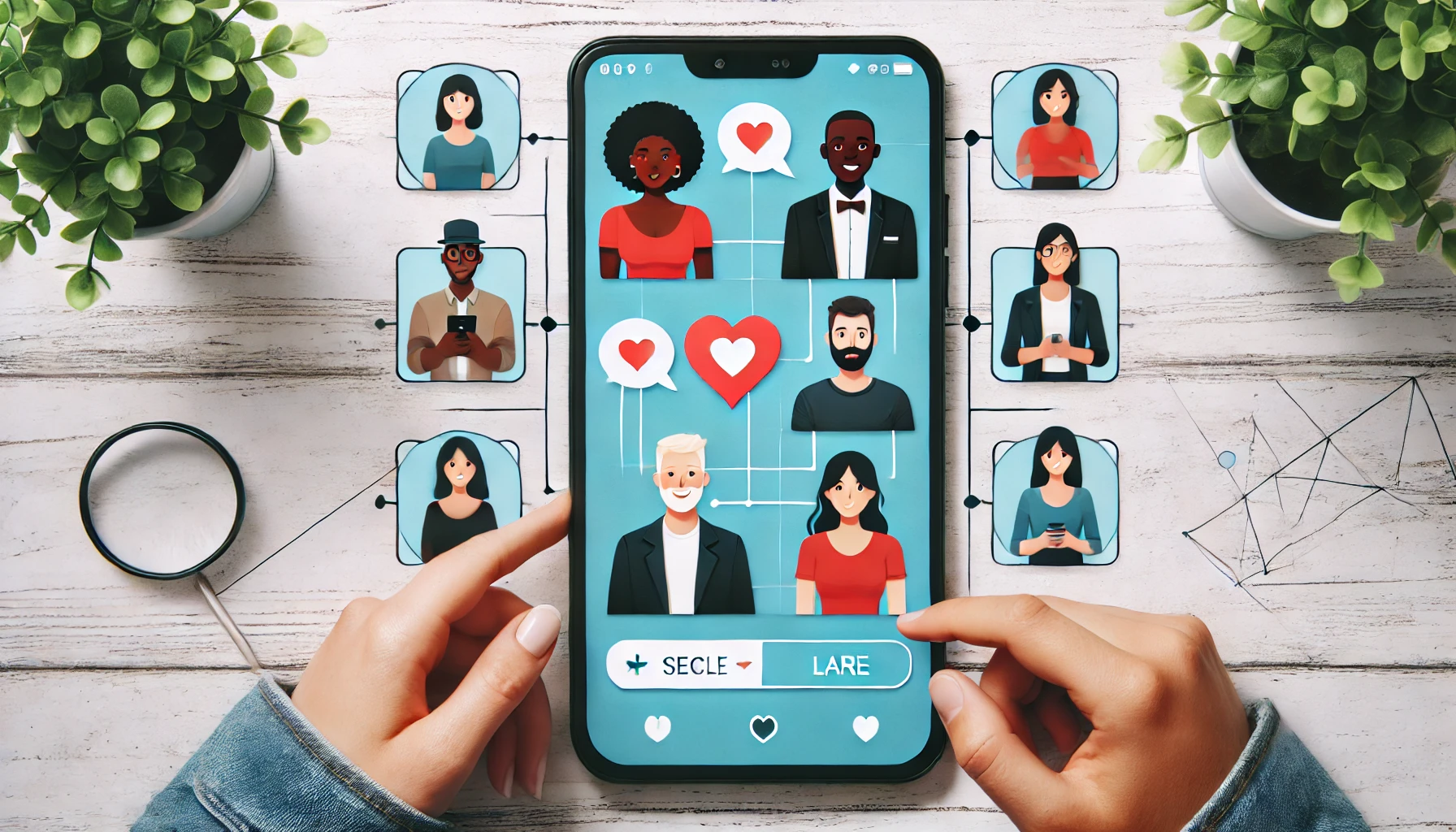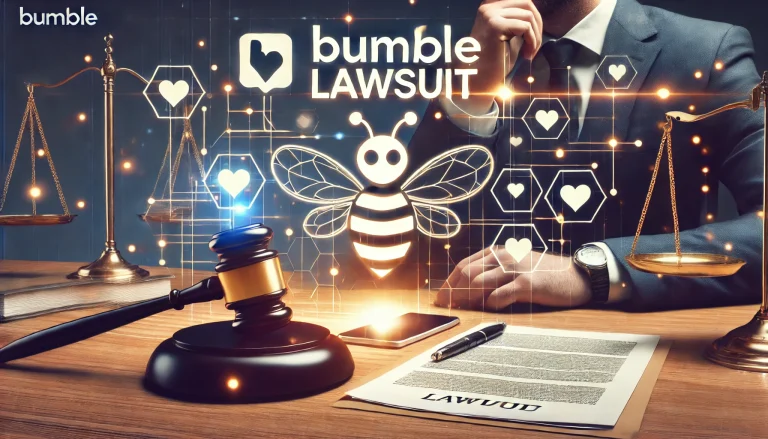Bumble Lawsuit, one of the most popular dating platforms worldwide, is known for its unique “women-first” messaging policy, where only women can initiate conversations with men. While this feature was designed to empower women and combat harassment, it has also led to several legal challenges. These lawsuits have brought attention to important issues such as data privacy, gender discrimination, and the security of user information. In this article, we will examine the key lawsuits that Bumble has faced, their broader implications for the dating app industry, and the lessons these legal battles offer to companies across the tech sector.
Understanding the Bumble Lawsuit: What Happened and What It Means for Users
In recent years, Bumble Lawsuit, one of the leading dating platforms, has been involved in multiple legal cases that have raised questions about its policies and data-handling practices. One of the most notable lawsuits was centered on alleged violations of Illinois’ Biometric Information Privacy Act (BIPA). According to the claims, Bumble and its sister app Badoo collected users’ facial geometry data without obtaining proper consent, which is required under the law. This resulted in a settlement of $40 million, highlighting the importance of transparency and compliance with privacy regulations.
Another lawsuit revolved around gender discrimination. Bumble’s women-first messaging policy, designed to empower women by allowing only them to initiate conversations with men, was challenged by male users who felt it was unfair. Although this policy was originally intended to create a safer environment for women, it led to a $3 million settlement and opened a broader conversation about inclusivity and fairness in dating app features.
Bumble also faced allegations of a prolonged data breach that reportedly left user information exposed for over 200 days. This incident emphasized the need for stronger security measures and timely responses to potential threats. Together, these legal challenges not only impacted Bumble financially but also prompted a reevaluation of how dating apps handle privacy, user safety, and fair treatment for all.
Key Lawsuits Against Bumble
Bumble has faced multiple lawsuits over the years, each addressing different aspects of its operations. Let’s dive into some of the major legal challenges:
Illinois Biometric Information Privacy Act (BIPA) Settlement
In 2024, Bumble, along with its sister app Badoo, was accused of violating Illinois’ Biometric Information Privacy Act (BIPA). This law requires companies to obtain explicit consent from individuals before collecting their biometric data, such as facial geometry scans.
Bumble was accused of collecting such data without adequate consent from users. The lawsuit resulted in a settlement worth $40 million. Affected users—those who accessed Bumble or Badoo in Illinois between November 2016 and December 2021—were eligible for compensation.
This case highlighted the increasing concern about biometric data collection in the tech industry. With facial recognition becoming more common in apps, this lawsuit served as a reminder to all companies about the importance of respecting user privacy and complying with data protection laws. Bumble’s settlement also served as a signal to other companies about the potential financial and reputational risks of non-compliance with privacy regulations.
Gender Discrimination Class Action Lawsuit
In 2021, Bumble found itself at the center of a class-action lawsuit filed by male users who argued that the app’s women-first messaging policy was discriminatory. According to the lawsuit, Bumble’s policy—where only women are allowed to initiate conversations with men—unfairly limited the interaction opportunities of male users. The plaintiffs argued that this policy was a form of gender discrimination.
Bumble eventually settled the lawsuit for $3 million. Male users who were affected by this policy received compensation. While the lawsuit was settled, it raised significant concerns about how gendered features in tech platforms might impact different user groups.
Bumble’s defense was that the women-first messaging system was designed to reduce harassment and create a safer environment for women. However, the lawsuit underscored the challenges that tech companies face when implementing policies that are meant to benefit one group but may unintentionally disadvantage others. It sparked discussions about inclusivity and fairness, urging companies to evaluate their policies with a more balanced perspective.
Data Breach Allegations
Bumble was also sued in 2020 over allegations related to a significant data breach. According to the class-action lawsuit, Bumble failed to properly secure its users’ sensitive data. This breach lasted for over 200 days, during which time private information, such as personal messages, was exposed to unauthorized parties. The lawsuit claimed that Bumble’s negligence allowed this breach to occur and that the company did not take immediate action to rectify the situation or notify users in a timely manner.
This case highlighted the critical importance of cybersecurity for tech companies. The breach raised questions about Bumble’s security protocols and its ability to protect user data. It also illustrated how data breaches could lead to legal and financial consequences, as well as damage a company’s reputation. Bumble’s response to this lawsuit emphasized the need for dating apps to implement more robust security measures to safeguard users’ privacy.
Broader Implications of the Lawsuits
The lawsuits against Bumble have far-reaching implications for the entire tech and dating app industries. Let’s explore how these cases have affected the industry as a whole:
Data Privacy Concerns
Bumble’s legal challenges are a clear indication of the growing concerns over data privacy in the digital world. With the increasing reliance on biometric data, location tracking, and personal information, dating apps must prioritize privacy and transparency. The BIPA lawsuit is just one example of how users are becoming more aware of the risks associated with sharing personal data with tech companies.
For dating apps and other tech platforms, it is now more important than ever to be transparent about what data is being collected, how it is used, and who has access to it. Failure to do so can result in legal penalties and a loss of user trust. As laws like BIPA continue to evolve, companies will need to adapt their policies to ensure compliance and protect users’ personal information.
Ethical and Non-Discriminatory Policies
Bumble’s gender discrimination lawsuit also highlights the challenges that tech companies face when implementing policies meant to benefit one group of users over another. The “women-first” messaging policy was introduced as a way to create a safer space for women, reducing instances of harassment. However, this policy led to concerns that it unfairly restricted male users’ ability to engage with others on the platform.
The legal action prompted Bumble to reconsider how its policies could be viewed from different perspectives. The lawsuit underscored the importance of inclusivity in creating features that serve the entire user base. Companies must balance their values—such as promoting safety and equality—while ensuring their policies do not inadvertently create discrimination or alienate any group.
Legal and Financial Repercussions
Legal battles are costly, and Bumble’s experience with settlements demonstrates how lawsuits can impact a company financially. The $40 million settlement over the BIPA case and the $3 million gender discrimination settlement are just some of the financial consequences Bumble has faced. Legal fees, potential compensation for users, and reputational damage can result in a significant financial burden.
Additionally, lawsuits like these can hurt a company’s reputation, especially in the highly competitive tech space. Negative publicity surrounding data breaches or controversial policies can lead to user attrition, which may further impact a company’s revenue.
Lessons for the Dating and Tech Industries
The lawsuits against Bumble offer valuable lessons for other companies in the dating and tech sectors. These lessons emphasize the importance of user trust, ethical policies, and cybersecurity.
Importance of Transparency
One of the key takeaways from the lawsuits against Bumble is the need for transparency. Whether it’s explaining how user data is collected or communicating the reasoning behind certain policies, tech companies must be open with users. Clear communication helps build trust and ensures that users are fully informed about how their data is being used.
Strengthened Cybersecurity Measures
The data breach lawsuit is a reminder of the importance of robust cybersecurity practices. Dating apps collect sensitive personal information, and if this data is not properly protected, it can lead to severe consequences. Regular audits, security updates, and encryption are essential to safeguard user data from cyber threats.
Fairness in Policies
Lastly, the gender discrimination lawsuit serves as a lesson for companies about the importance of fairness in their policies. While Bumble’s women-first policy was designed to empower women, it also had unintended consequences for male users. Companies should continuously review their policies to ensure they are inclusive and do not unfairly disadvantage any group of users.
Conclusion
Bumble Lawsuit legal challenges have raised important questions about data privacy, ethical policies, and security in the tech industry. While the company has faced significant financial settlements and reputational damage, these lawsuits also offer valuable insights into how tech companies can improve their operations. As the tech world continues to evolve, Bumble’s experiences highlight the need for companies to prioritize transparency, fairness, and security to protect users and avoid costly legal battles. By learning from these lawsuits, dating apps, and other tech platforms can create safer, more inclusive spaces for all users.
FAQs
What is Bumble’s women-first messaging policy?
Bumble allows only women to initiate conversations with men in heterosexual matches, aiming to create a safer and more empowering dating experience.
How did the BIPA lawsuit impact Bumble?
Bumble faced a $40 million settlement for allegedly collecting biometric data without consent, emphasizing the importance of privacy compliance.
What was the outcome of the gender discrimination lawsuit?
The company settled for $3 million, prompting industry-wide discussions on balancing inclusivity with fairness in app features.
How long did Bumble’s data breach go undetected?
The breach reportedly exposed user data for over 200 days before the company addressed it, raising concerns about cybersecurity practices.
What lessons can other dating apps learn from Bumble’s lawsuits?
Transparent data practices, strong security measures, and fair user policies are essential for building trust and avoiding costly legal challenges.
Article Recommendations
Sheetz Lawsuit Background Checks Debate: Are Blanket Hiring Policies Putting Companies at Risk?
UWM Lawsuit 2024: Why the Mortgage Industry Is Watching These Legal Cases Closely
Sparta Mesothelioma Legal Question: Exploring Compensation, Lawsuits, and Asbestos Trust Funds




